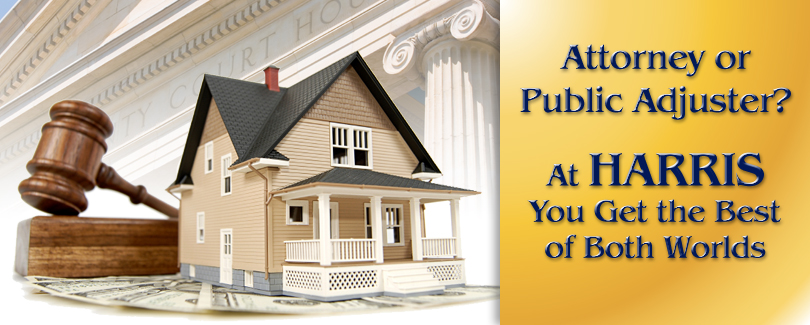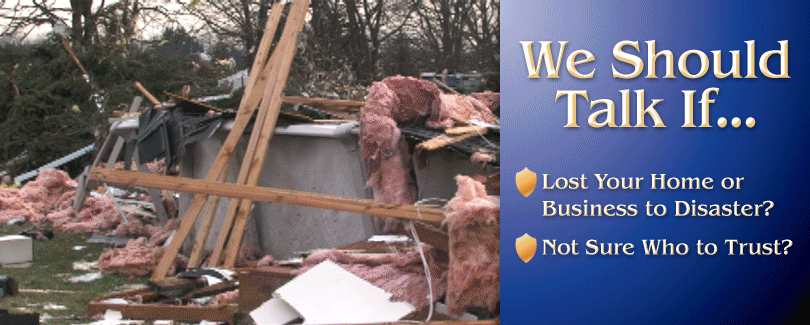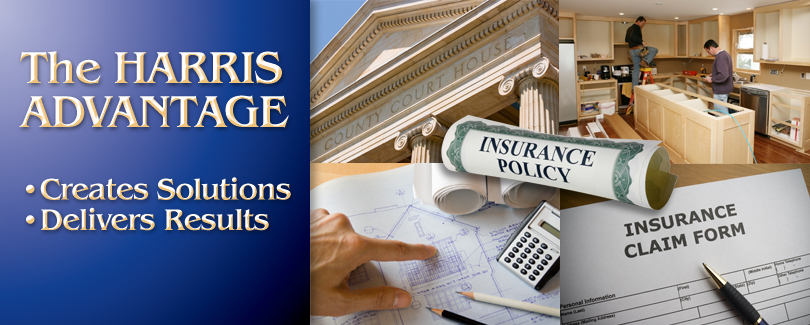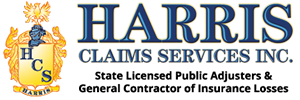THREE TYPES OF CLAIMS ADJUSTERS – THE GOOD, THE BAD AND THE UGLY

IN THE INSURANCE INDUSTRY THERE ARE THREE TYPES OF INSURANCE ADJUSTERS WHO HANDLE INSURANCE CLAIMS AFTER A FIRE, FLOOD, WIND OR DISASTER RELATED LOSS

In the insurance there are three types of Adjusters. Some may think of them as the “The Good, the Bad and The Ugly” Clint Eastwood fans of course are smiling here.
The reality in the insurance industry is, well not exactly that, but can at times be close. Let me explain and provide an understanding of what occurs after you buy your insurance.
When you purchase your insurance, it similar to buying a Car. You meet with the salesman and negotiate a deal. In the insurance Industry you meet your agent and discuss premiums, coverages and believe all is good. Or so you think. You do not discuss how the coverage applies. What is hold back depreciation? Why payment is made in parts? Why you are not fully protected? In other words there is really no discussion on how the claims process will work in the event of a loss.
When you need service on your car, you do not go back and visit the salesman for the repairs. You go to the repair and service department where you are met with what is usually bad news on the cost of the repairs. Similarly in the insurance adjusting industry, when you have a claim, your agent is relatively not involved and in fact has little to no control over the eventual settlement of the claim. He or she merely calls in the claim. The adjuster from the insurance company like the repair man oversees and evaluates claim payments.
Now let’s address the three types of Adjusters. The first type of Adjuster are those which the public is commonly familiar with and are portrayed in all the commercials and advertising as being “a good neighbor” or “the good hands people” or “there on your side” These are the “company Adjusters”. Who are they really obligated to? Who pays their salary and holiday bonus based on work performance? Simple. They are adjusters who work for, represent and are obligated to the insurance company. They are “Company Adjusters”. They are direct employees of the insurance company.
The Second type of Adjuster is similar to the “company adjuster” with one little difference. They are for, lack of better words” hired guns” to represent the insurance company interests. They are known as “Independent Adjusters” They make their living on how well they perform for the insurance company – the party who hired them. Their obligations and loyalty is strictly to the insurance company, not the victim – the insured who has suffered the loss, and has been damaged and displaced from his or her home or business. The “independent Adjuster” is brought in by the insurance company. The independent Adjuster answers to the insurance company NOT the insured – the property owner.
Interestingly in most states, the “Company Adjuster” and “the Independent Adjuster” who are controlled by the insurance company do NOT even have to be licensed or required to pass an examine to conduct the business of insurance adjusting for the insurance company. The amount of training and knowledge these two types of adjuster possess may at times be frustrating and highly questionable, especially on large complicated losses.

The Third Type of Adjuster, one which represents the interest of the victim, the insured only and not the insurance company is a “Public Adjuster”. Some times referred to as a private adjuster or PA. Public Adjusters are licensed, tested and bonded to act on behalf of the property owner. Yes, they have to pass an examine and meet other standards which the other two categories of Adjusters do not.
The Public Adjuster only represents the property owner in the claim against the insurance company. They are the watchdogs of the industry. The Job of a Public Adjuster is to maximize claim benefits for the property owners – the clients. They do it on a daily basis. Harris Claims Services has been doing exactly that for over 20 years.
Now what happens after a loss occurs..
An Adjuster from the insurance company is assigned to handle the claim. The Independent or Company Adjuster – each one – represents the insurance company and has a fiduciary responsibility to protect the best interest of the company, while at the same time agreeing on a loss payment solution. They do not represent the interests of the insured – the one who suffered the loss.
As with any business enterprises Insurance companies, by any legal means, are constantly on the lookout for cost saving strategies to reduce the claims and payments. Their adjusters are constantly trained and evaluated on their use of such strategies. They employee strategies such as – “you must use one of our vendors” or the “you can’t buy that at Best Buy you have to buy it online” or “ it’s not covered under the policy” or “it was a small fire it really does not smell we can just wipe down the soot” or “we don’t pay for a claim when the house is vacant for over 30 days”. There are many more examples of such but that is for a separate article for another day.
 In my 20 years as an Adjuster and also as an Attorney, working on both sides of the fence, I have met very fine and knowledgeable adjusters who represent insurance companies. I am friends with many of these individuals. We, even as friends understand, persons working for the insurance companies have a job to do. Keep the loss and payments low. Where on the other side, we all understand the job of the Public Adjuster, like an Attorney is to represent the interest of the insured to the best of his ability and therefore maximize the claim. All sides act in a professional manner and seek to perform their job responsibilities. Interestingly, many adjusters working for insurance companies appreciate a well-qualified Public Adjuster. They know and understand that they are confronted with an individual working on behalf of the owner who has the knowledge and expertise to negotiate and get the claims settled. This is not to say ever loss is simply a matter of crunching numbers.
In my 20 years as an Adjuster and also as an Attorney, working on both sides of the fence, I have met very fine and knowledgeable adjusters who represent insurance companies. I am friends with many of these individuals. We, even as friends understand, persons working for the insurance companies have a job to do. Keep the loss and payments low. Where on the other side, we all understand the job of the Public Adjuster, like an Attorney is to represent the interest of the insured to the best of his ability and therefore maximize the claim. All sides act in a professional manner and seek to perform their job responsibilities. Interestingly, many adjusters working for insurance companies appreciate a well-qualified Public Adjuster. They know and understand that they are confronted with an individual working on behalf of the owner who has the knowledge and expertise to negotiate and get the claims settled. This is not to say ever loss is simply a matter of crunching numbers.
One problem which occurs is what could be referred to as the “Power House” company adjuster. This is the Company or Independent Adjuster who believes they are almost god like and there decision is final. These bad eggs can really be problematic. They are a problem and a nightmare for the property owner. They are bullies and until someone stands up to them, bullies never change. In such a situation, the property owner should give very strong consideration to qualified public adjuster who is knowledgeable in all aspects of the claims and perhaps the laws of the state. These type of adjusters usually do not back down unless threatened with information which has some type of legal backing. Sometimes appraisal in such a situation is required in order to remove this type of adjuster from controlling the loss.
Then there is the issue of insurance company adjusters who are simply overworked and underpaid. Due to the stress of their jobs, a huge percentage of company adjusters only stay in the field between one and five years. Turnover is high. Some are good, some are bad and many don’t have enough experience or training to evaluate a large loss. This is another situation where a qualified public adjuster can help and give a proper review and adjustment of the claim.
When a loss occurs which you believe may be over $10,000.00 give serious consideration to hiring a Licensed and Bonded Public Insurance Adjusters. They can handle all aspects of the claim process. In many instances your agent and the insurance company’s adjuster will tell you almost anything to get you to cancel your contract with a Public Insurance Adjuster. Why? Because Public Adjusters Statistically recover more money on claims where they are used as opposed to when an insured try’s to settle the claims themselves. Insurance Adjusters and Agents have even threatened my clients. For example, advising them that they will cancel their insurance policy if they don’t cancel the Public Adjusters contract. Such a statement should be the first indication that you made the right choice in hiring a Public Adjuster. Insurance Agents usually do not like to see large losses occur on policies they have written. They are reviewed by the insurance company and the insurance company then may question what types of properties they are insuring. Ask an insurance agent about a Profit – loss ratio and see if they can explain it. It is not a good thing for a direct agent to suffer a lot of losses.

When hiring a Public Insurance Adjuster you are signing a legally binding contract which is enforceable under the laws of your state. Most states allow for ten day cancellation period. In other words, you have ten days to see how a public adjuster works and owe nothing. The peace of mind a public adjuster brings to the insured is hard to describe. Many have stated to me, “I felt the weight off the world on my shoulders until I hired you. ”. “Thank God you were there”. “ I never knew you guys existed” “how do insurance companies get away with this” This list goes on.
An insurance claim payment can be increased 20% to 50% by a competent Public Insurance Adjuster. Many Public Adjusters charge 10% of the total loss as their fee for this service.
In conclusion, at a minimum, the insured –property owner should give consideration to a meeting with a Public Adjuster. As stated above there is usually no charge, and as we like to say, knowledge is power, power is leverage, and leverage will get you what you are entitled to.
Best of luck to you.
JASON HARRIS has over twenty years of experience as an attorney in the insurance litigation industry. He is also a licensed, tested and bonded public Insurance Adjuster in Illinois. His companies, Harris Claims Services and others have assisted insureds throughout Illinois and the Country. There is absolutely no obligation and welcomes the opportunity to discuss claims with properly owners. Any one suffering a loss is urged to check with their state’s department of insurance to make sure the party they are speaking to is licensed tested and bonded as public adjuster. They can be reached at 847-329-8444 or visit them on the web at www.HarrisClaimsServices.com.
